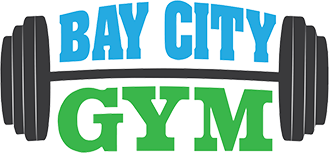Article provided by Chrissy Newall – Owner/Operator
There’s has been a lot going on over the last few years. From covid and cyclones to recession and cost of living worries, we now more than ever need strategies to help us to manage stress, anxiety and mental health.
One of the biggest reasons why Hamish and I own a gym is that over the years we have always come back to daily exercise being one of our personal strategies to keep mental symmetry and clarity that helps us be the best we can be and feel. Our mission is to share this with as much of our Napier community as possible by making exercise friendly, welcoming, caring and fun.
Exercise can have a significant positive impact on your mental health in several ways. Here are some of the ways it helps to enhance your mood and confidence:
Release of Endorphins: Exercise triggers the release of endorphins, which are often referred to as “feel-good” hormones. These chemicals can help reduce feelings of pain and stress and promote an overall sense of well-being and happiness.
Reduction of Stress and Anxiety: Regular physical activity can help lower stress levels and reduce symptoms of anxiety. Exercise can act as a natural stress reliever by decreasing the body’s production of stress hormones, such as cortisol, and increasing the production of relaxation-inducing neurotransmitters, like gamma-aminobutyric acid (GABA).
Improved Mood: Exercise has been shown to enhance mood and alleviate symptoms of depression. It can increase the brain’s production of serotonin, a neurotransmitter associated with mood regulation. This can lead to a more positive outlook and a reduction in feelings of sadness and depression.
Enhanced Self-esteem: Engaging in regular exercise can improve your self-esteem and body image. As you make progress and achieve fitness goals, you may feel a sense of accomplishment and confidence in your abilities.
Better Sleep: Regular physical activity can improve the quality and duration of your sleep. Good sleep is essential for overall mental health, and exercise can help regulate your sleep patterns.
Cognitive Benefits: Exercise has cognitive benefits, including improved memory and enhanced cognitive function. It can help with focus, concentration, and mental clarity.
Social Interaction: Participating in group sports or exercise classes can provide social interaction and a sense of community, reducing feelings of loneliness and isolation, which can have a positive impact on mental well-being.
Stress Relief: Physical activity can serve as a healthy outlet for stress and pent-up emotions. Engaging in exercise can help you cope with life’s challenges and frustrations in a constructive way.
Routine and Structure: Establishing a regular exercise routine can add structure to your daily life, which can be particularly helpful for individuals dealing with mental health issues like depression, where a lack of structure can exacerbate symptoms.
It’s important to note that the type and intensity of exercise can vary from person to person. What works best for one individual may not be the same for another. It’s essential to find an exercise routine that you enjoy and can maintain over the long term, as consistency is key to reaping the mental health benefits of exercise. Before beginning any new exercise program, especially if you have underlying health conditions, it’s advisable to consult with a healthcare professional or a fitness expert to ensure that the exercise is safe and appropriate for your specific needs and circumstances.
At Bay City Gym we have motivating classes such as Les Mills and Small Group Personal training as well as weekly one on one personal training options. One of our most unique services is the ability to receive an 8 week program and to sit down with your trainer and make an 8 week fitness map with a realistic goal. This service is part of our community focus and something that modern gyms no longer provide.
So whether you are an existing member or non-member please get in touch and book in for a 30 minute chat with a trainer so we can learn more about how we can help you best with your exercise routine. This support can take away the anxiety of whether you will use your membership or not.


